Happy electric new year! Every EV coming to Australia in 2025
Sales of EVs took a breather in 2024.
But an influx of new models in 2025 looks set to propel Australian electric car sales to new heights.
As well as familiar big name brands bolstering their EV offerings a raft of new brands is set to significantly increase the cars we have on offer.
READ MORE: EV sales for 2024: Australians bought a record number of EVs last year … just
Add the impact of the federal government’s New Vehicle Efficiency Standard that encourages car makers to sell vehicles that emit less CO2, and EVs are on a fast track to sales success.
Here are all the new EVs you can expect in Australia in 2025.
And while some may end up running late – it’s been a familiar theme across the industry over the past few years – there could also be others on the way that we don’t yet know about.
Alfa Romeo Junior
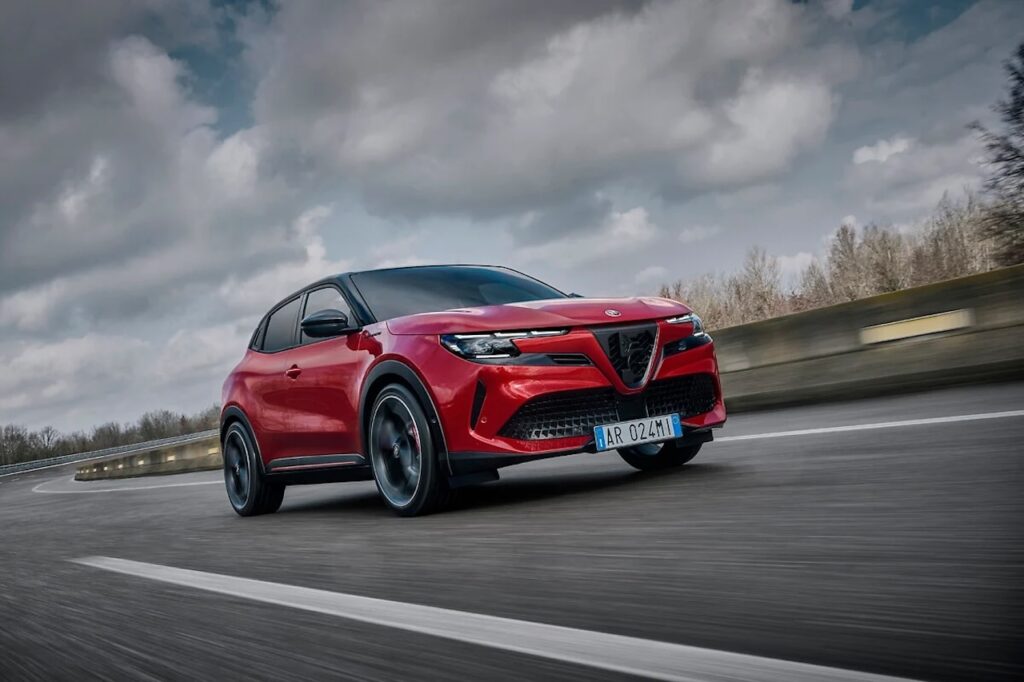
It was briefly known as the Milano but the first Alfa Romeo EV quickly had a name change after authorities pointed out naming it after an Italian city was unlawful because the car was going to be built in Poland. Some purists may also not like the fact that the underpinnings of the compact SUV are shared with others in the Stellantis family, including the Jeep Avenger. Still, at least the single motor front-drive SUV promises Alfa Romeo dynamics courtesy of sharp steering and a bespoke chassis tune. A bigger challenge will be replicating the sound that has long been part of the Alfa repertoire. Expect the Alfa Romeo Junior in local dealerships by the middle of the year with prices starting around $60K.
Audi Q4 e-tron
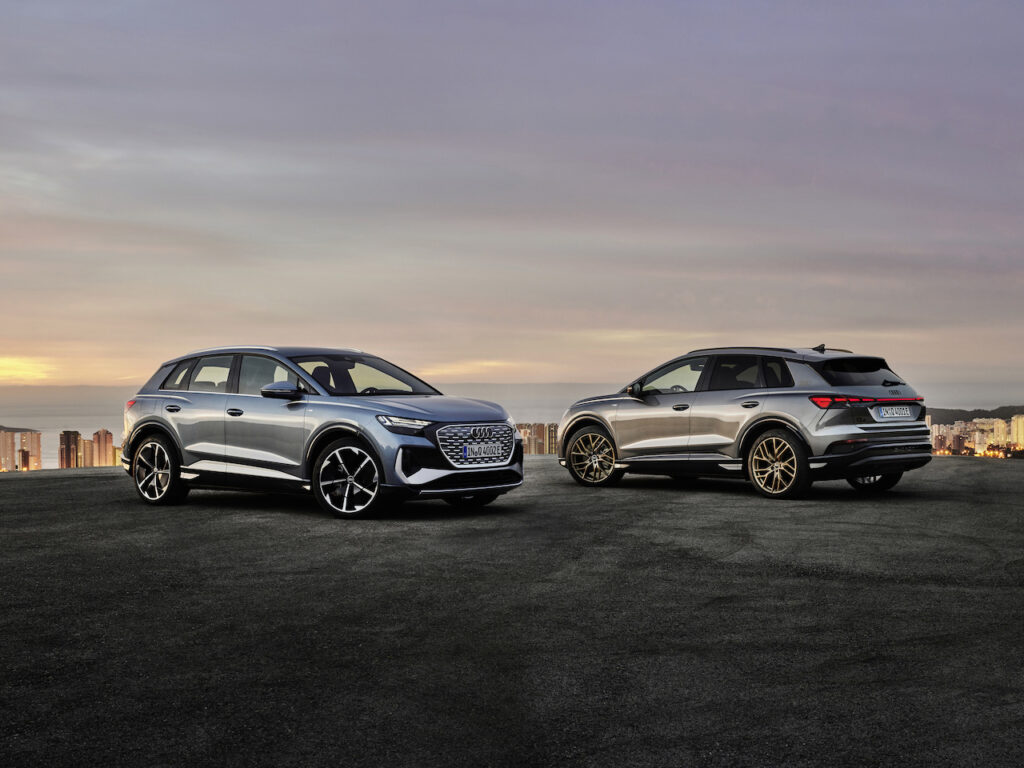
The smallest Audi EV is also one of the most important because its sub-$90K price tag means it can take advantage of the government’s FBT exemption. Priced from $84,900 plus on-roads, the compact SUV shares its underpinnings with various Volkswagen Group EVs, including the ID.4 and ID.5. While it’s taken a while to make its way Down Under, our Q4s get an 82kWh battery (77kWh of which is usable) and the ability to charge at up to 175kW. Single motor front-drive models make 210kW/545NM while dual motor Quattro variants (priced up to $107,900 plus on-roads) up that to 250kW/679Nm.
Audi Q6 e-tron
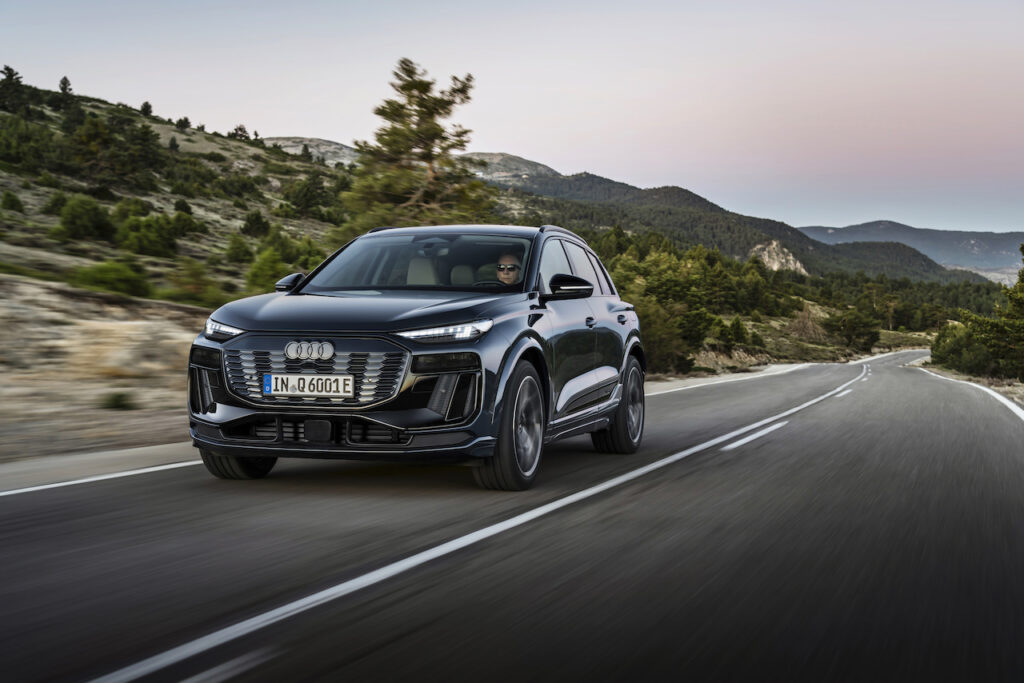
The mid-sized Q6 e-tron has serious pedigree beneath the skin: its architecture is shared with the recently arrived all-electric Porsche Macan. While power outputs are down slightly on the Porsche, the Q6 that arrives early – there’s also a Sportback version – in the year is hardly undernourished, making up to 380kW in SQ6 guise for a 4.3-second 0-100km/h dash. And, like the Porsche, the Q6’s 800V electrical architecture allows for charging at up to 270kW, making it among the fastest charging EVs on the road. The rear-drive single motor Performance is priced from $115,500 plus on-roads while the range topping SQ6 is $151,400.
Audi A6 e-tron Sportback and Avant
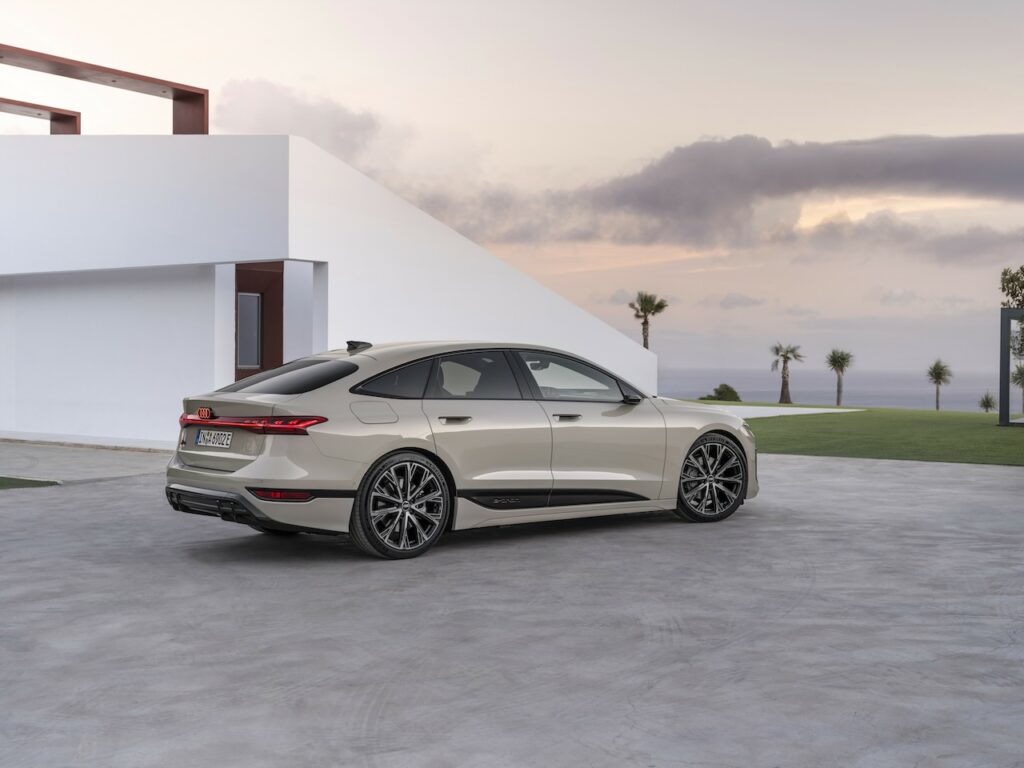
The A6 has never been a huge seller for Audi – and luxury cars these days are overshadowed by the rise of SUVs – but its switch to an EV-only platform for the new generation will allow it to take advantage of solid demand for slick-driving electric cars. The stylish four-door and even sleeker Avant (wagon) are due towards the middle of the year, with pricing to be announced closer to their arrival. An 800V architecture promises big power and fast charging and combines with a 100kWh battery for up to 756km of range.
BMW iX3
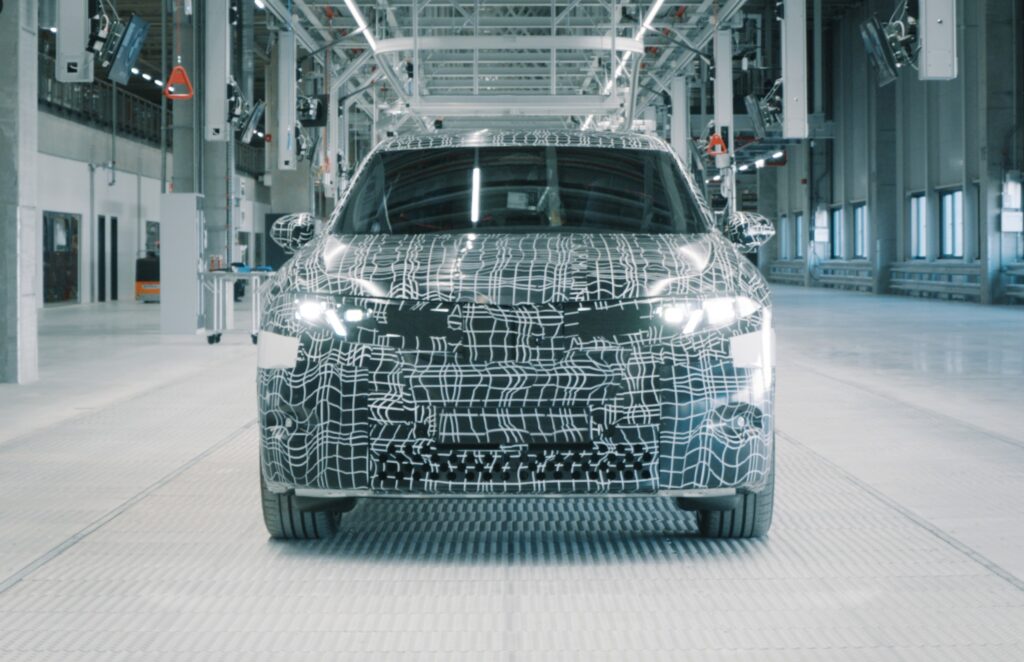
The iX3 has been a sales winner for BMW and the imminent arrival of a new model looks set to step that up. The 2025 iX3 is the first of the much-hyped Neue Klasse models that utilises more advanced battery cells and an optimised architecture running an 800V system. BMW says energy consumption will be up to 25 percent less than the current car, which is already impressively efficient. There’s also bold styling as part of the new EV direction and an anticipated influx of fresh tech to help the iX3 continue its sales success in the luxury class.
BYD Sealion 7

While the Sealion 6 is a plug-in hybrid the Sealion 7 is a pure EV, right down to its architecture that has been optimised for batteries and motors. It’s the same platform underpinning the BYD Seal, meaning a choice of single motor rear-drive models or dual motor AWD. With crosshairs locked on the Tesla Model Y, the Sealion 7 is expected to come in under that vehicle’s $55,900 (plus on-roads) starting price. With five seats and a tech-laden cabin the Sealion 7 looks set to shake up an increasingly busy mid-sized electric SUV segment.
BYD Dolphin update

It only hit the Aussie market in 2023 but already the BYD Dolphin is gearing up for a refresh. The updated version of the compact five-door hatch gets new lights, bumpers and grille and is expected to get interior tweaks too. It’s also expected to sharpen the value as it looks to chase the hard charging MG4 that has benefited from lower pricing.
BYD Atto 3 Up
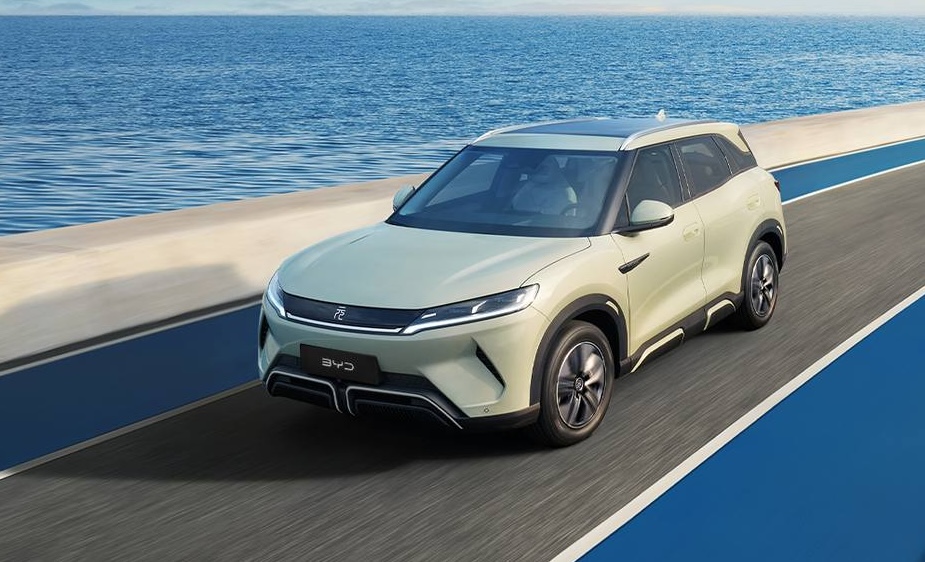
Not to be confused with the popular Atto 3, the Atto 3 Up is a smaller SUV known as the Yuan Up overseas. While small EVs haven’t been the sales hit some may have expected, the Atto 3 Up hopes to change that courtesy of its more adventurous high-riding body. The Atto 3 Up could sneak in below $40K, which would add some EV competition to the market dominated by the likes of Toyota, Mazda and MG. The larger 45.1kWh battery promises 401km of range and a single motor makes up to 130kW.
Cadillac Optiq
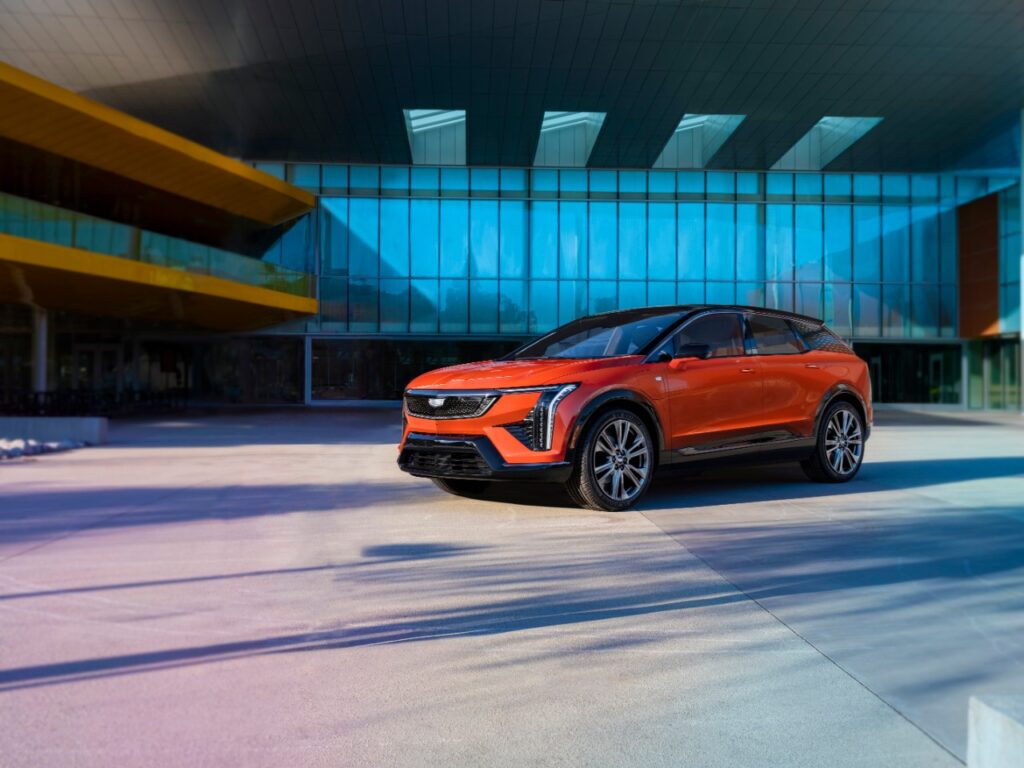
There’s plenty coming from Cadillac as it continues its relaunch in Australia as an EV-only brand. Key to that is the Optiq compact SUV that would also provide a sub-$90K price tag to take advantage of the generous FBT exemption. To sit below the recently arrived Lyriq, the Optiq – which is being manufactured in China and Mexico – hasn’t been confirmed for Australia but is high on the hit list as Cadillac looks to expand in 2025.
Deepal S07
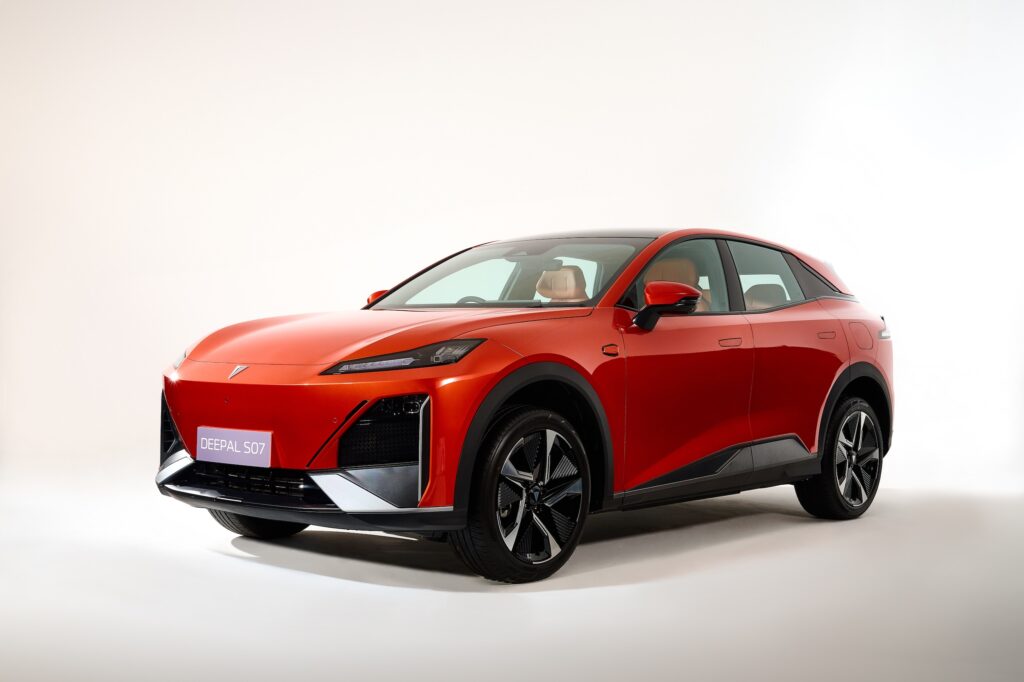
Newcomer Deepal technically hit the road just before Christmas, but customer deliveries of the brand’s first model are kicking off right now. The five-door S07 mid-sized SUV is larger than many and comes packed with gear, including a panoramic sunroof, heated and ventilated seats and a head-up display. Priced from $53,900 it’s clearly targeting Tesla, something that will prove challenging given the EV competition firing up around that price.
Ford e-Transit Custom and e-Tourneo
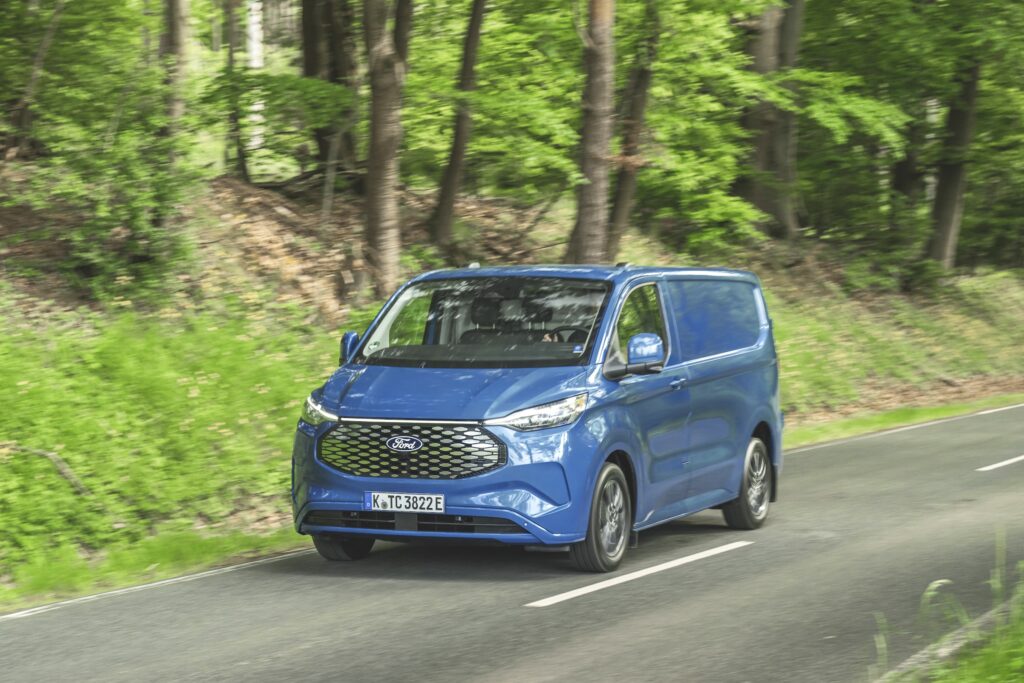
The electric version of the Transit Custom (the smaller version of the Transit) has the same load space as diesel models but more pulling power courtesy of a 160kW/415Nm electric motor driving the rear wheels. And while 337km of range from the 64kWh battery won’t be great for interstate adventures, it should be fine for couriers and delivery drivers with access to overnight charging. No word on pricing, but hopefully it’ll slide in around $70K. Ford Australia is also considering the e-Tourneo, an electric version of the Tourneo people mover.
Geely EX5
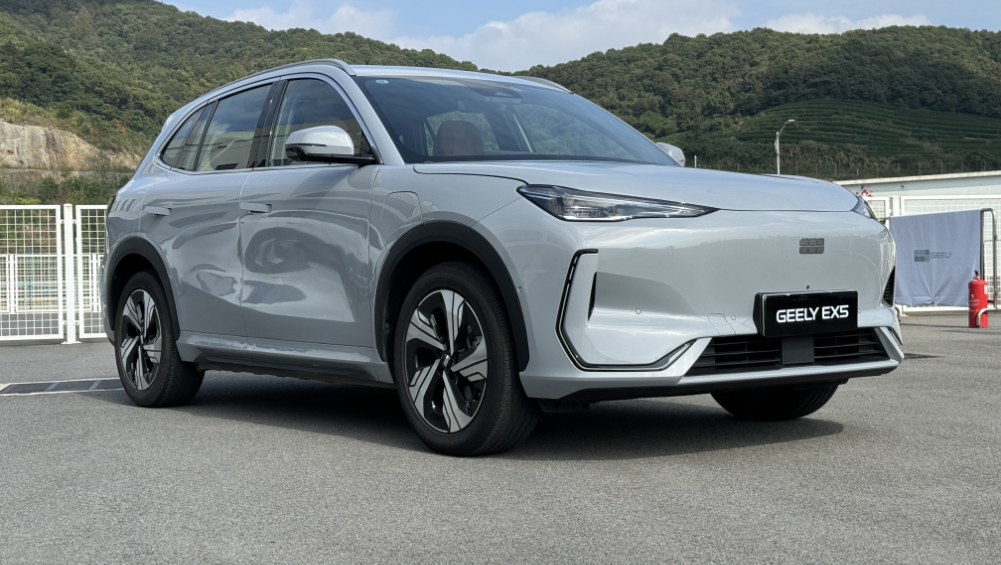
As the owner of Volvo, Polestar, Zeekr and others, Geely is a powerhouse in its Chinese homeland. And the brand is preparing for an Australian launch in the first half of 2025 with the Geely EX5 spearheading the assault. The mid-sized SUV is expected to be priced below $50K, making it a tempting proposition against the Tesla Model Y and other electric SUVs priced closer to $60K.
Geely Riddara RD6

Utes these days in Australia are typically workhorses that have been adapted to suburban life. But the Riddara RD6 appears to do away with some of the heavy duty expectations and is instead aiming to offer the style and practicality of the big boys but with a car-like EV architecture beneath the skin. For now, the Riddara RD6 has only a single motor driving the rear wheels, immediately limiting its usefulness to on-road driving. Not that Aussies are unfamiliar with that; two-wheel drive Ford and Holden utes were previously big sellers, suggesting there are plenty who would be happy with more of a lifestyle ute. There’s no word yet on a launch date, but it’s expected sometime in 2025.
Genesis Electrified G80
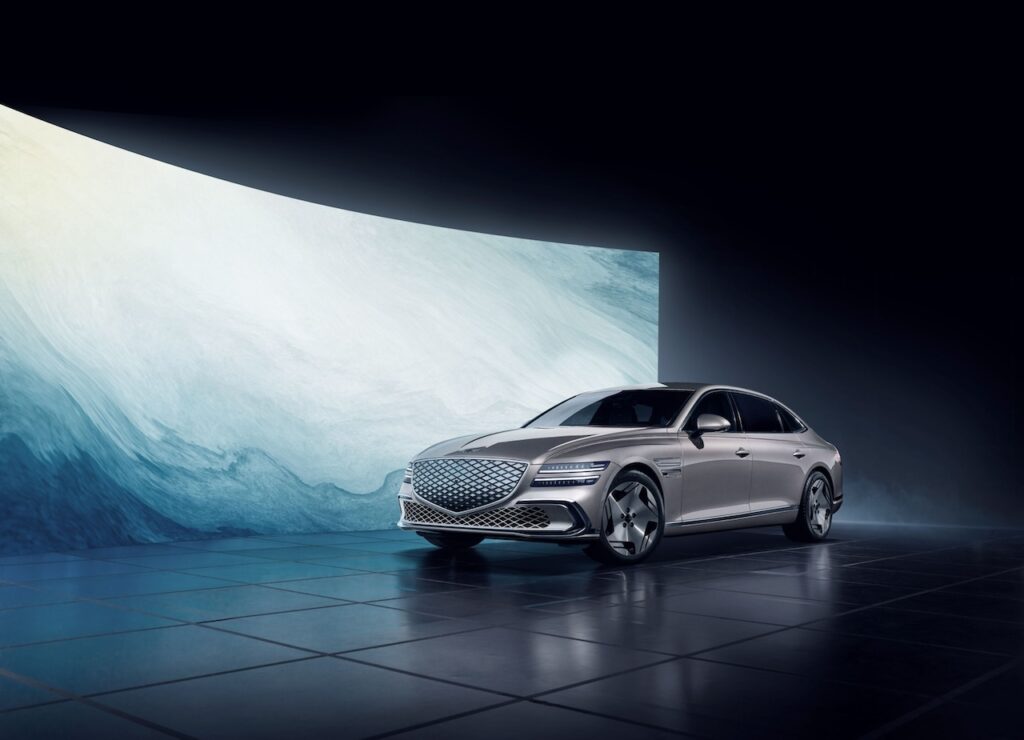
It’s a niche of a niche model but the EV version of the G80 – unimaginatively called the Electrified G80 – scores an upgrade in 2025. The big news is a 130mm stretch to the wheelbase that translates into more rear legroom. There are also reclining rear seats with leg rests. The battery capacity has increased to 95.4kWh, in turn increasing the range to something like 580km. No word on pricing, but it’s likely to head north from the current car’s ask of $145,058 plus on-roads.
Hyundai Inster
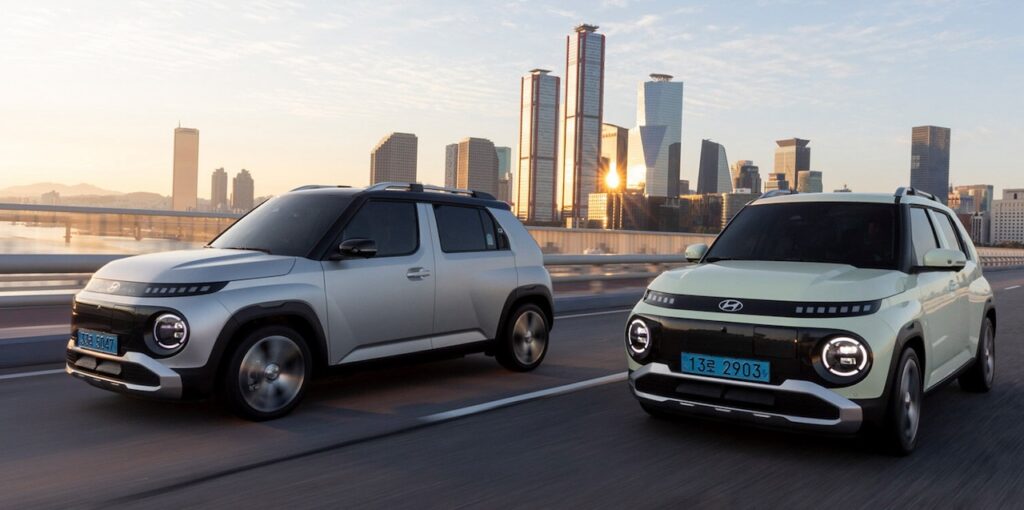
Hyundai’s smallest and most affordable EV, the Inster, is also something of a head turner courtesy of boldly styled LEDs front and rear and a boxy stance. Due in dealerships in February, the five-door is clearly aimed at city motoring, with the largest 49kWh battery giving it only a 360km range between charges. Power outputs are modest, too, with 71kW in the Standard Range model or 85kW in the Extended Range. But there’s a generous smattering of gear, including dual 10.25-inch screens and wireless phone charging. Pricing is expected to kick off at about $40K.
Hyundai Ioniq 9
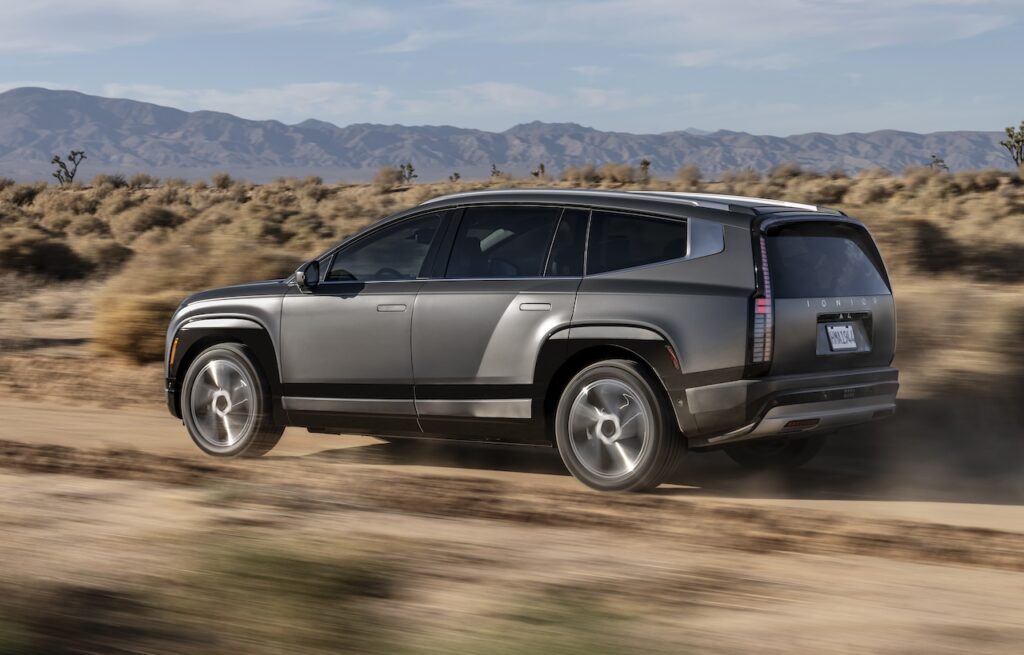
Hyundai’s answer to the Kia EV9 comes in the form of the Ioniq 9. The two share platforms and an 800V electrical system, which allows for charging up to about 230kW. While seven-seat models are available, overseas the Ioniq 9 also comes with an interesting six-seat set-up that includes independent middle row seats that can swivel 180 degrees. A sizeable 110kWh battery promises a driving range of up to 620km. Expect a long list of standard gear to help offset what are expected to be premium prices, likely to kick off at around $100K.
IM Motors LS6
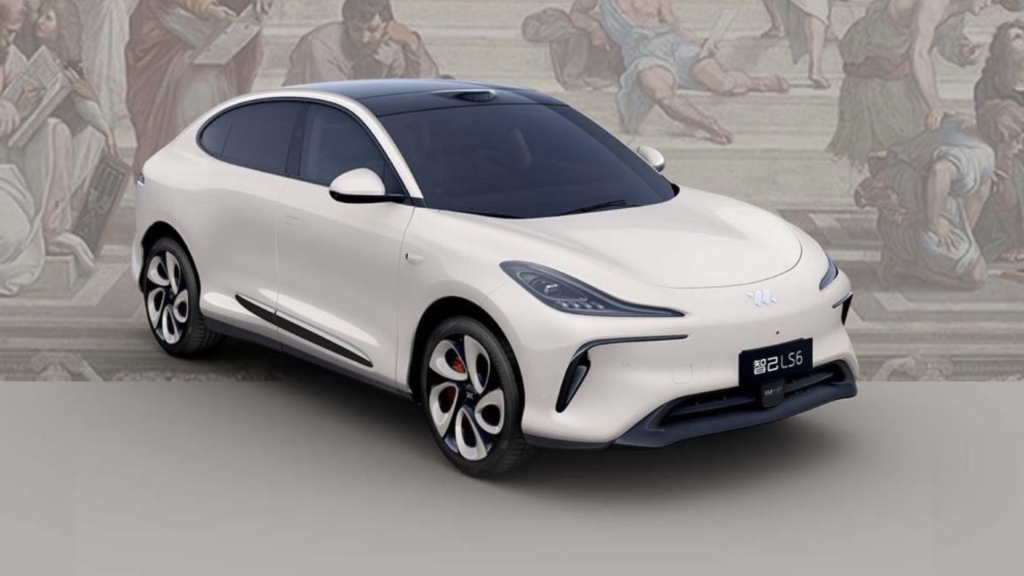
Chinese-owned MG is looking to go upmarket with its IM sub-brand and the LS6 is very likely to be one of the models that paves the way in 2025. The Tesla Model Y rival boasts big power outputs – up to 529kW for a 0-100km/h dash in 3.5 seconds – and an upmarket interior. There’s also an 800V electrical architecture and a sizeable mid-sized SUV body. No word on timing or pricing.
KGM (Ssangyong) Torres EVX
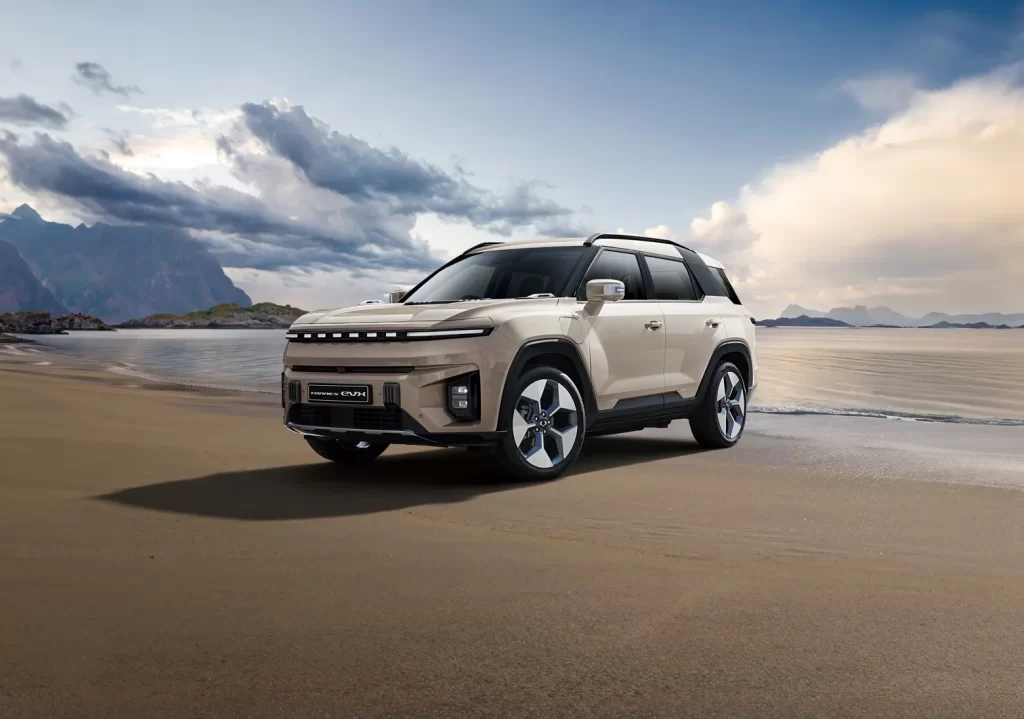
Ssangyong is in the throes of rebranding as KGM just as it gears up to unleash its first EV, the Torres EVX. The mid-sized Torres is already available with petrol engines but is due early in 2025 as the EVX battery electric vehicle. Expect it to be more expensive than the $38,000 drive-away starting price of the regular Torres. But value for the single motor front-drive EV is expected to be a big part of the sales pitch for the revitalised brand.
Kia EV3
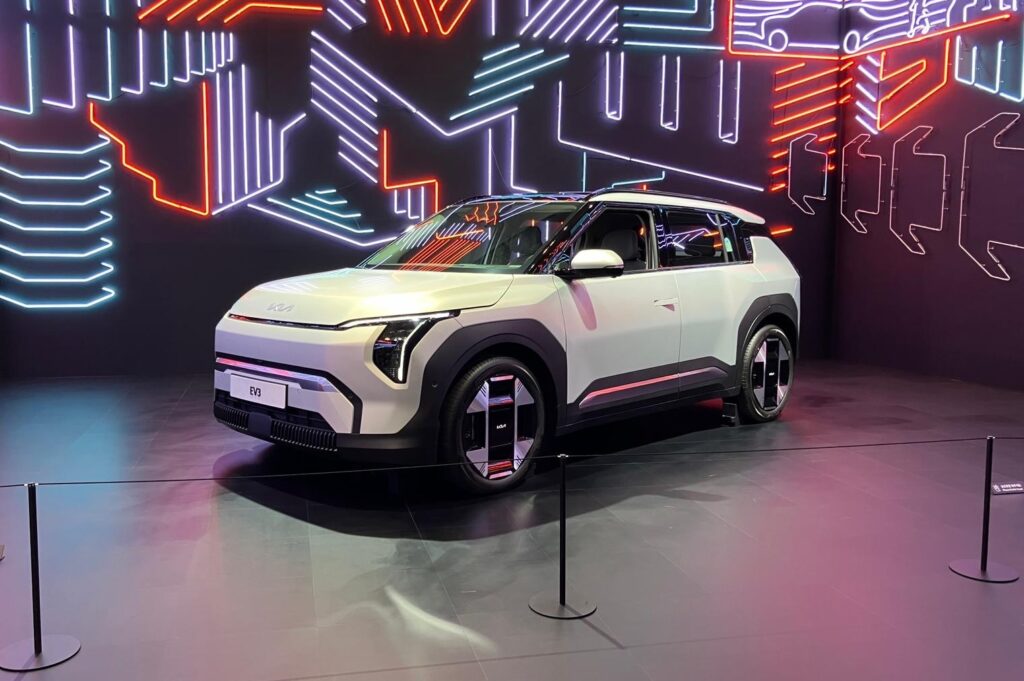
The soon-to-arrive EV3 is shaping up to be Kia’s most affordable EV – and one that also happens to look pretty cool. As with the bigger electric Kias there’s plenty of recycled materials in the compact SUV and a tech-focused cabin with dual 12.5-inch screens. Single motor models are expected to start below $50K while dual motor models will head north from there. With decent driving manners and a functional cabin the EV3 is shaping up to be an interesting entrant at the lower end of the electric SUV market.
Kia EV4
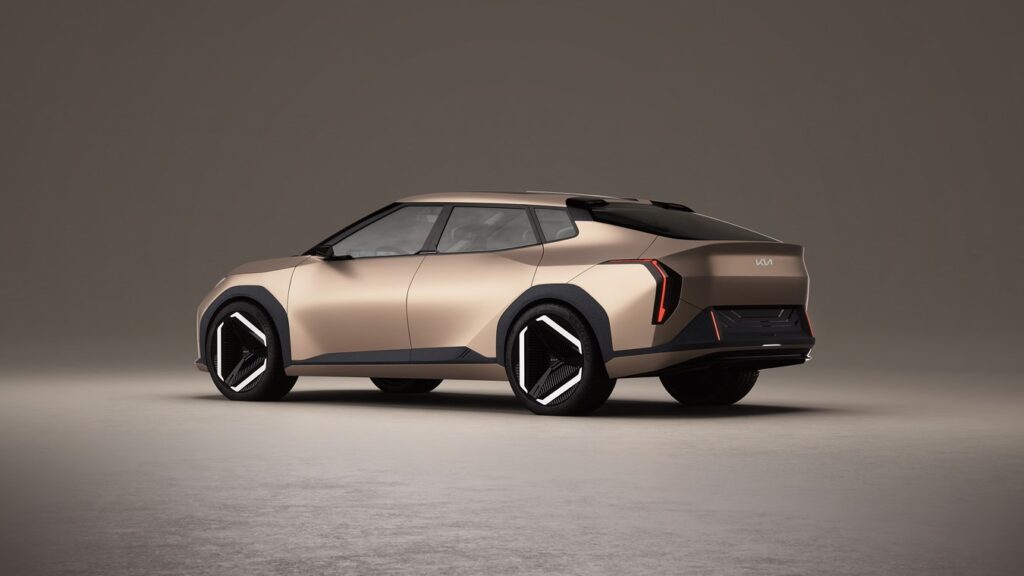
Kia’s answer to the Tesla Model 3 is shaping up to be a boldly styled sedan that’s certain to stand out, at least if the concept car is any indication. That was always the plan with the EV4, with Kia keen for something a tad riskier aesthetically that stepped away from tradition. Due later in 2025, the EV4 rides on a dedicated EV architecture set to create a spacious cabin with a flat floor. It’s expected to borrow much of the running gear of the EV5, including its 400V electrical system (EV6 and EV9 use an 800V set-up).
LDV eTerron 9
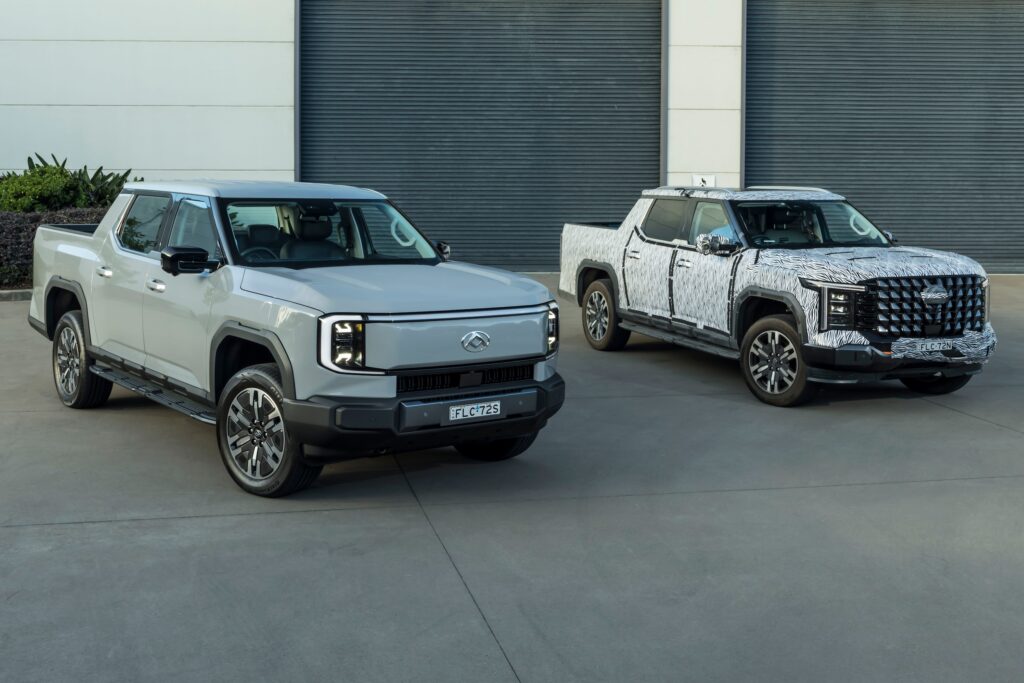
LDV’s first electric ute, the eT60, was supremely underwhelming, but the all-new eTerron 9 is looking a lot more convincing. While the Chinese brand will also build diesel versions of the Terron 9, the eTerron 9 gets a 102kWh and two electric motors for 430km of driving range. It’s also undergone local testing to ready it for life in ute-loving Australia.
Leapmotor C10
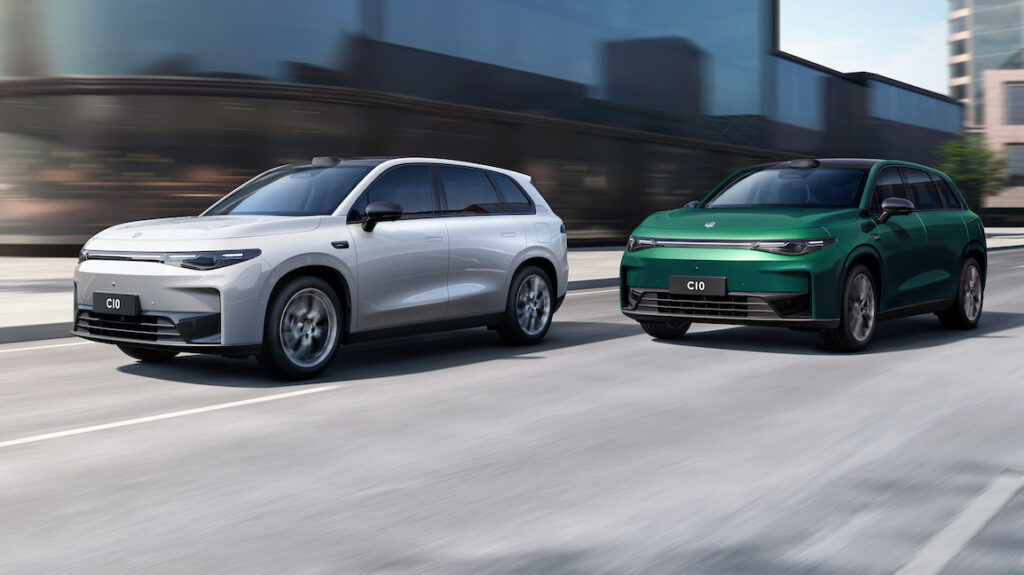
The first car from the newcomer brand being distributed by Stellantis has one big advantage over other mid-sized electric SUVs: its price. The C10 is priced from $45,888, which is around $10K less than many rivals, including the Tesla Model Y. There’s a suitably long list of equipment, although Apple CarPlay and Android Auto connectivity won’t initially be available. A single 160kW/320Nm motor drives the rear wheels and a 69.9kWh battery is claimed to provide 420km of range.
Mercedes-Benz G580e
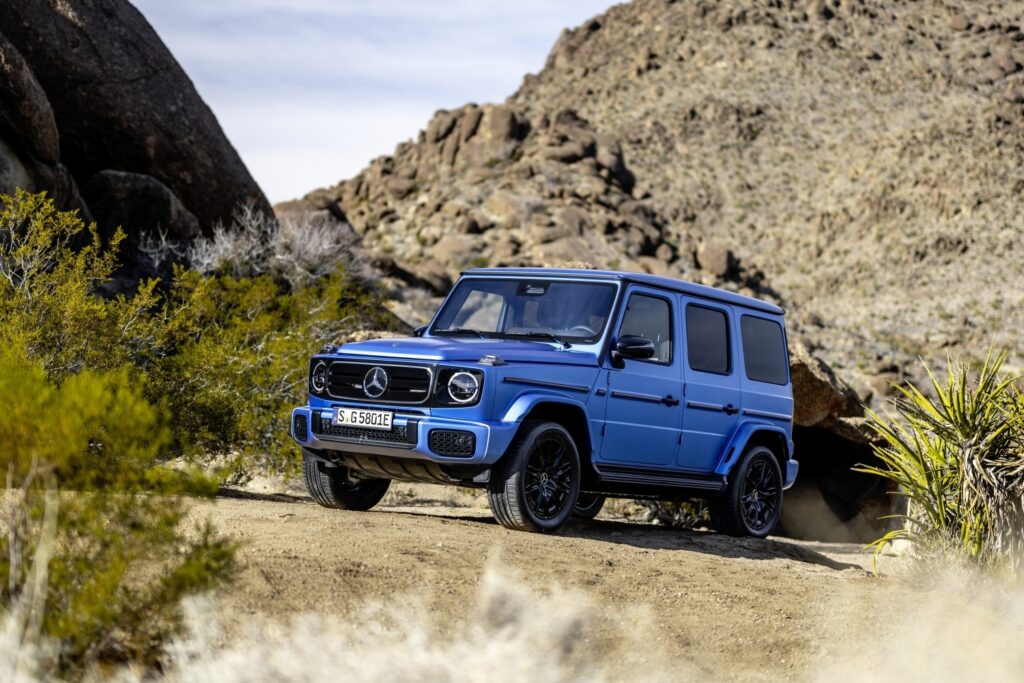
The electric version of the mighty G-Wagen has eschewed its EQG concept car nomenclature for the G580e. While it shares much of its rugged boxy styling with the regular G, there are also EV hints with touches such as the LED grille. But it’s the EV goodness beneath the skin that’s set to transform the much-loved off-roader. Four axial flux motors combine to make a hefty 463kW and 1164Nm and early reports suggest the G580e is also hugely capable off-road – while being loads of fun on the black top. Don’t expect it to be cheap, though, with early estimates suggesting a circa-$360K price tag.
MG ES5
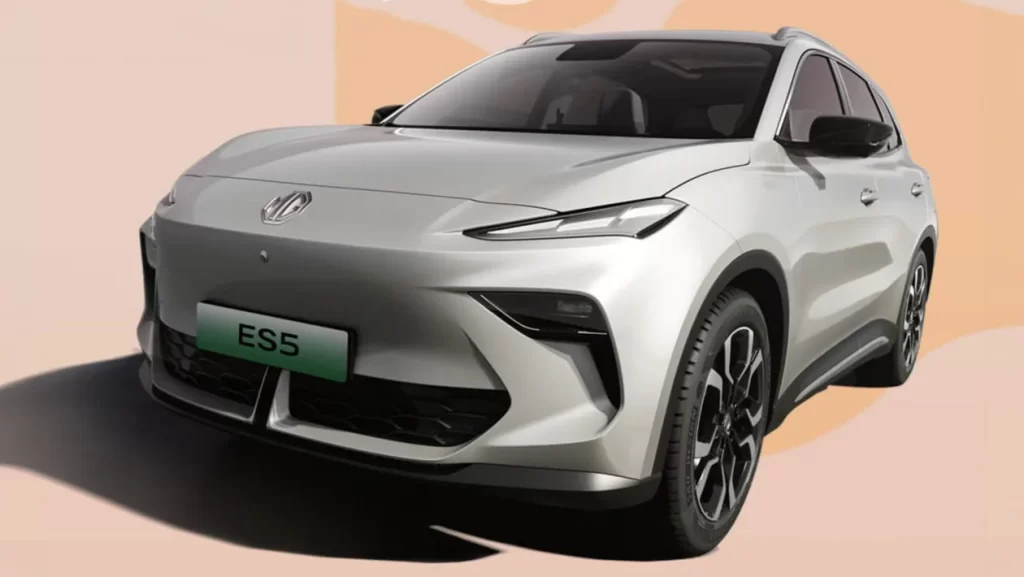
It’s shaping up to be a big year with lots of the new model activity focused on EVs, including the ES5 compact model. The curvaceous five-door is expected to be sharply priced and arrive sometime in the first half, providing added competition in a booming segment of the market. It’ll initially be offered with a single 125kW/250Nm motor and the choice of two battery capacities, the larger 62.2kWh one providing something like 450km of range. It’s still unknown whether it will be called ES5 in Australia, with some reports suggesting it could be the new ZS EV and others suggesting simply S5.
MG Marvel R
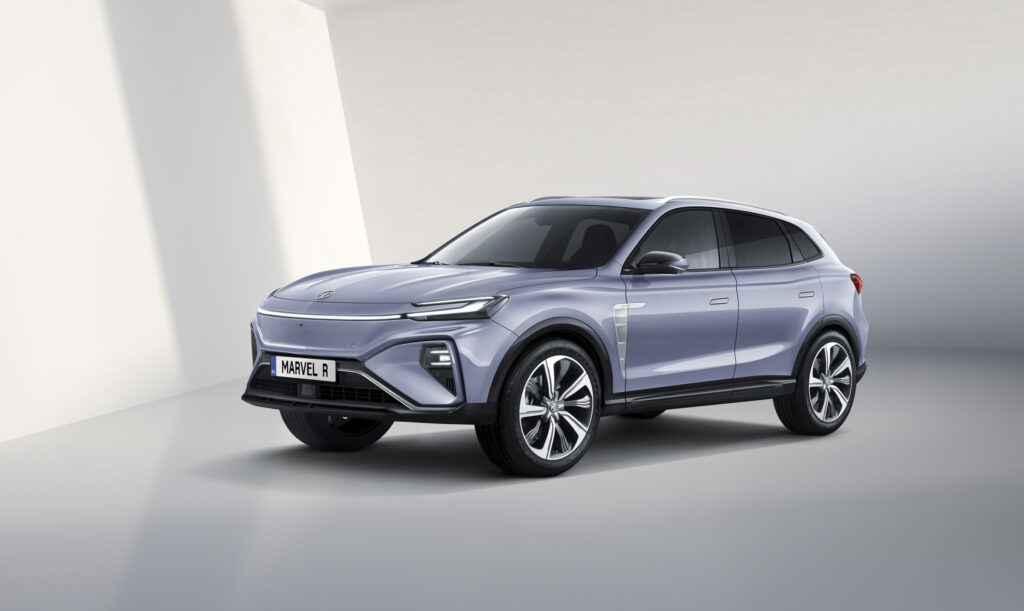
The focus for MG has largely been on value, but the Marvel R swings that around to also ensure driving excitement is right up there. The mid-sized SUV gets an interesting dual motor set-up for the rear wheels. The company will also offer all-wheel drive versions that add a third motor to the front axle. Not that it’s quicker than dual motor rivals, with the 212kW/665Nm maximum outputs claimed to take it to 100km/h in 4.9 seconds.
Nissan Ariya
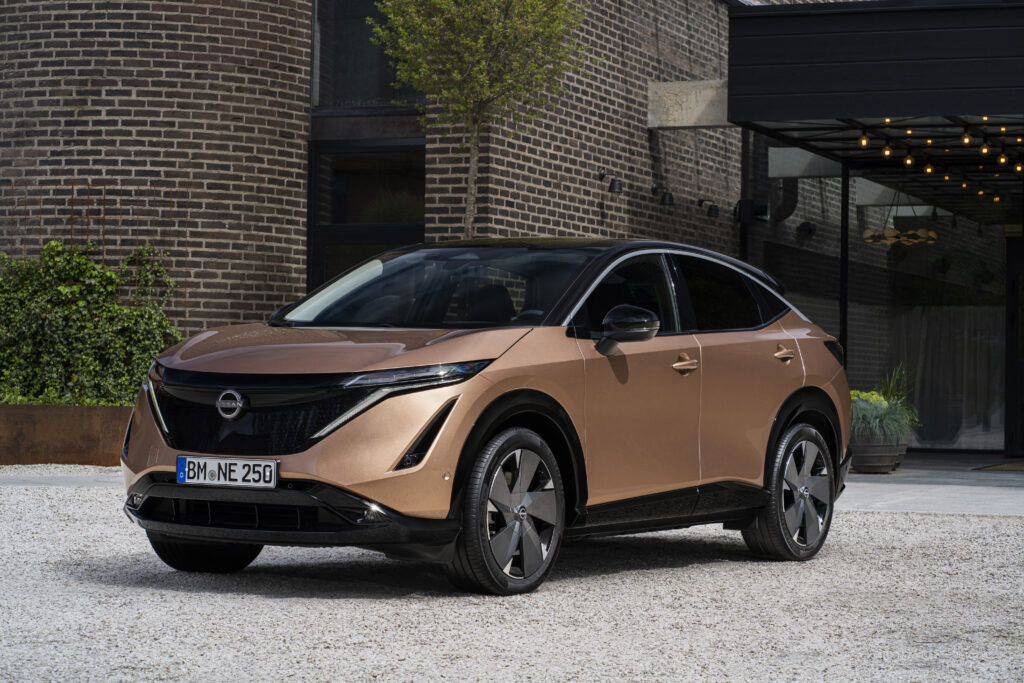
Since going on sale internationally in 2020 it’s taken an eternity for Nissan to finally get the five-door SUV ready for Australia, arriving here later in 2025. The spacious five-seater Ariya will be offered in different trim levels and with different battery capacities as the brand looks to capitalise on the marketing its pumped into the Leaf EV for more than a decade. The next challenge is pricing, which we hope is closer to the Tesla Model Y ($from $55,900 plus on-roads) than the Toyota bZ4X (from $66,000 plus on-roads), each of which it will compete with.
Polestar 5
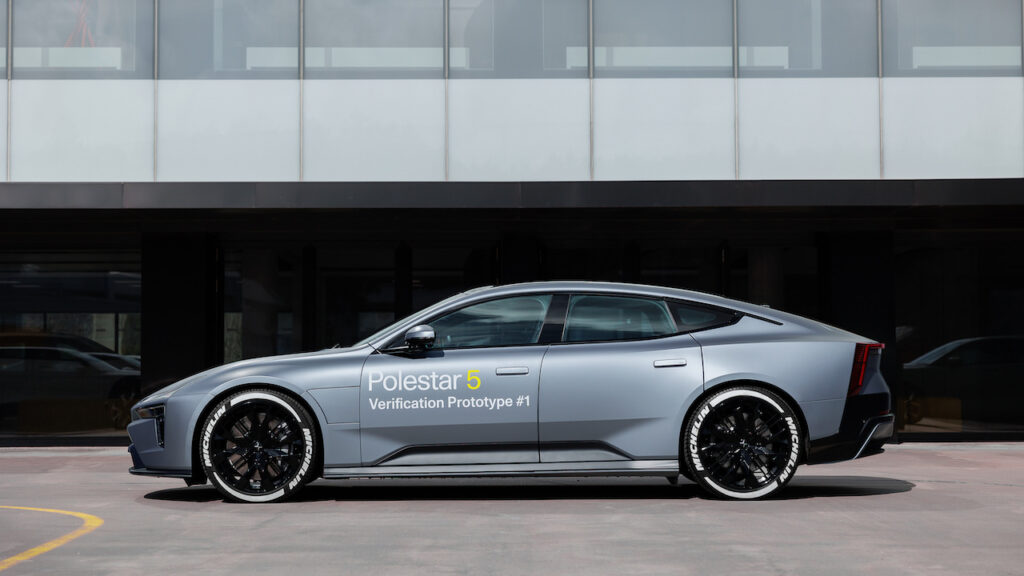
Now that the Polestar family is expanding the company is keen to pop an exclamation mark on the progress with the Polestar 5. With eyes on the Porsche Taycan, the 5 is largely about pace and driving excitement, with a healthy sprinkling of luxury thrown in. Like the Taycan, there are cutouts in the battery pack to allow for the feet of rear occupants. There’s also an 800V electrical system and up to 650kW of power, something that should ensure rapid progress. Expect pricing approaching $200K for the late 2025 arrival.
Range Rover EV
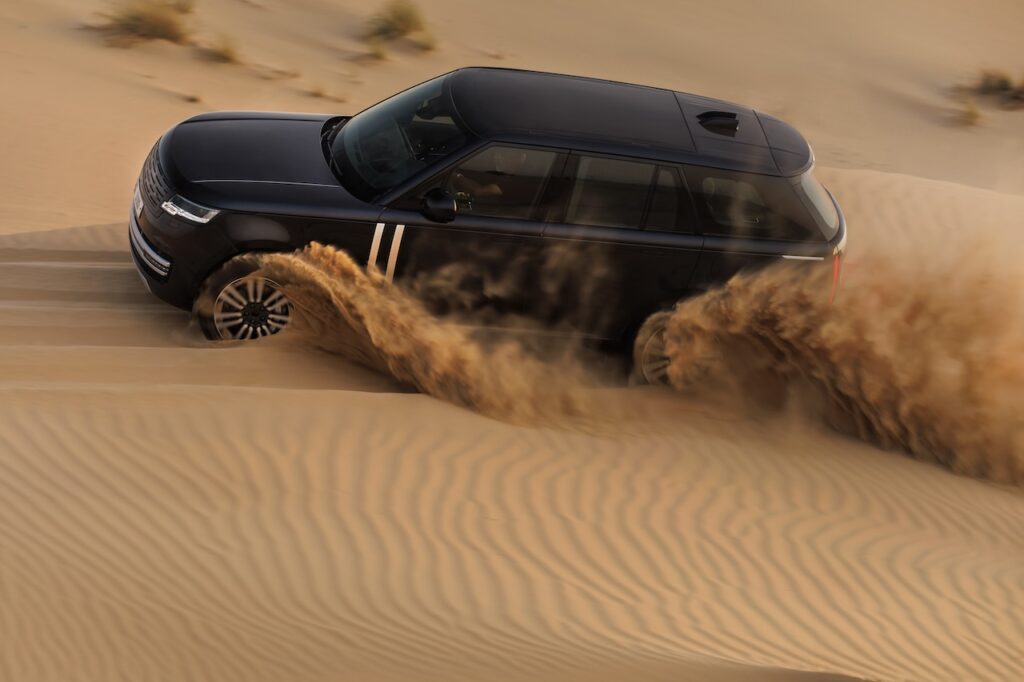
The car that invented the luxury off-roader space back in the 1970s is looking to reinvent it with an EV version of a car that is these days heavily focused on the finer things in life rather than getting the tyres dirty. That said, the Range Rover EV that should make its way Down Under by the end of the year, should still be able to clamber over plenty of challenging terrain. Utilising the long wheelbase underpinnings of the Range Rover, it also promises V8-like performance. We’re also expecting a suitably luxurious price tag.
Renault 5 Turbo 3E
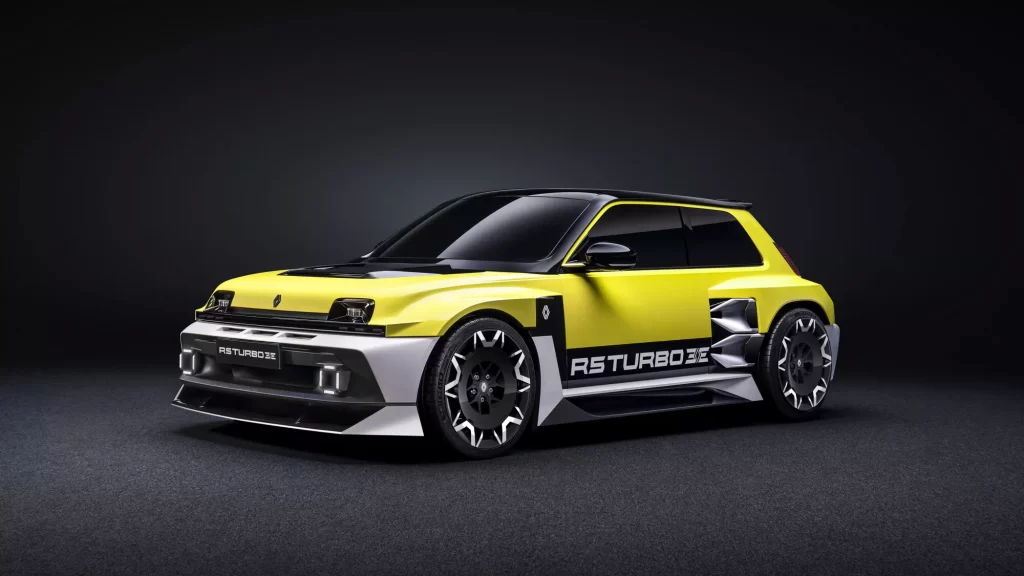
The wildest version of Renault’s born again 5 has been confirmed for Australia. The radical R5 Turbo 3E will come here in 2025 along with a price tag expected to be well north of $200K. For that you’re getting a hot hatch with supercar-like underpinnings, right down to its carbon fibre body. Two electric motors send 375kW to the rear wheels for some potent EV acceleration. As for the regular Renault 5 EV – the one that would likely be priced around $50K – that’s still in limbo, albeit high on Renault Australia’s wishlist.
Renault Scenic E-Tech
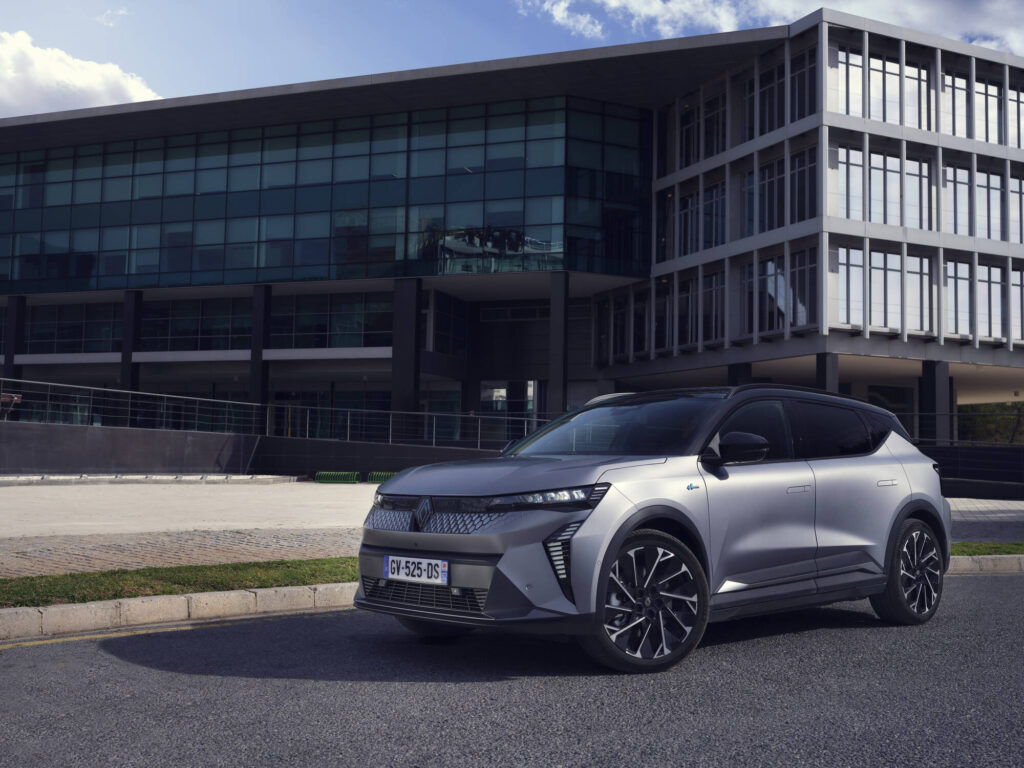
It’s yet to be confirmed but Renault Australia still has its hands high in the air for the Scenic E-Tech, which utilises the underpinnings of the Megane E-Tech already available here. That means a single motor driving the front wheels. If it happens, there’s a good chance the Scenic E-Tech will slip into 2026, although the optimist in us is hoping the compact people mover could make it here by the end of 2025.
Skoda Elroq
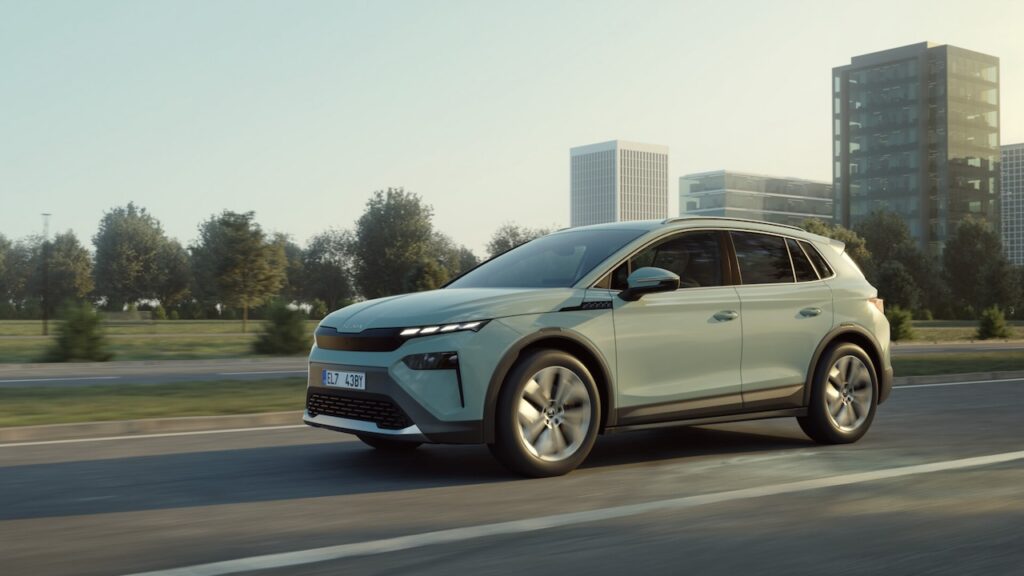
Due early in the second half of 2025 the Elroq is set to give the Volkswagen-owned brand some decent EV volume. Set to replace the petrol-fed Karoq, pricing will clearly be crucial to the acceptance of the compact SUV. Riding on the same architecture as the Enyaq and Volkswagen ID.4 (among others), the Elroq will be offered with a choice of batteries and motors. It’ll also come with a ChatGPT virtual assistant.
Skywell ET5
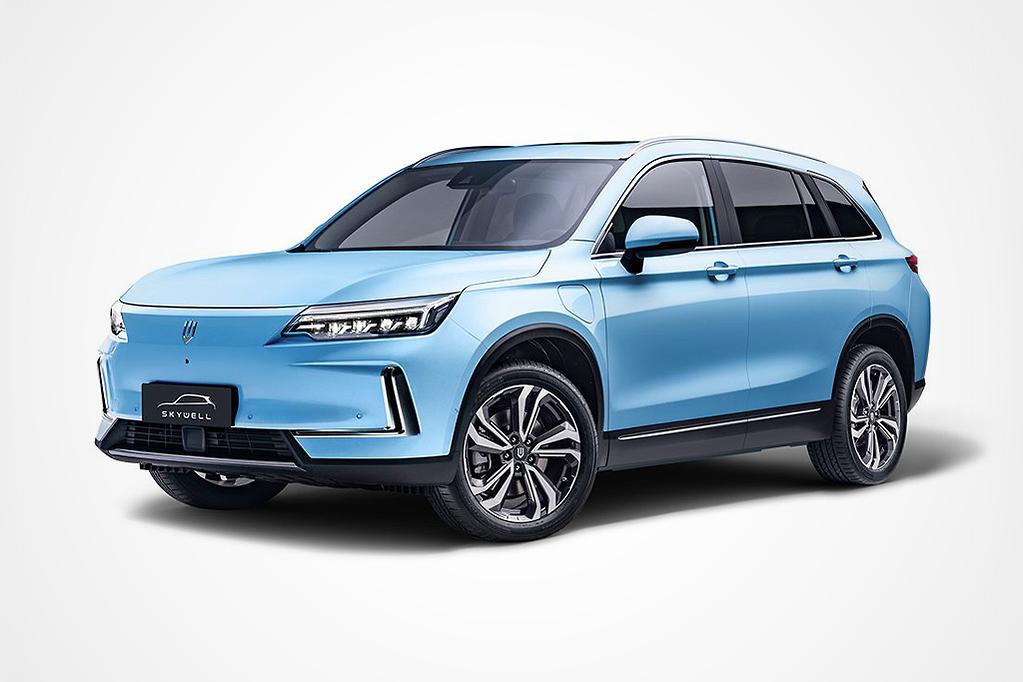
Fledgling brand Skywell is planning to start selling the ET5 mid-sized SUV early in the year. If you haven’t heard of the brand, you’re certainly not alone, although through importer EV Automotive it has been selling (in tiny numbers) the EC11 electric van. While details on the ET5 SUV are scant, the company has previously flagged a circa-$45,000 start price. There will be at least two battery capacities – 72kWh and 86kWh – powering a single 150kW motor driving the front wheels.
Smart #5
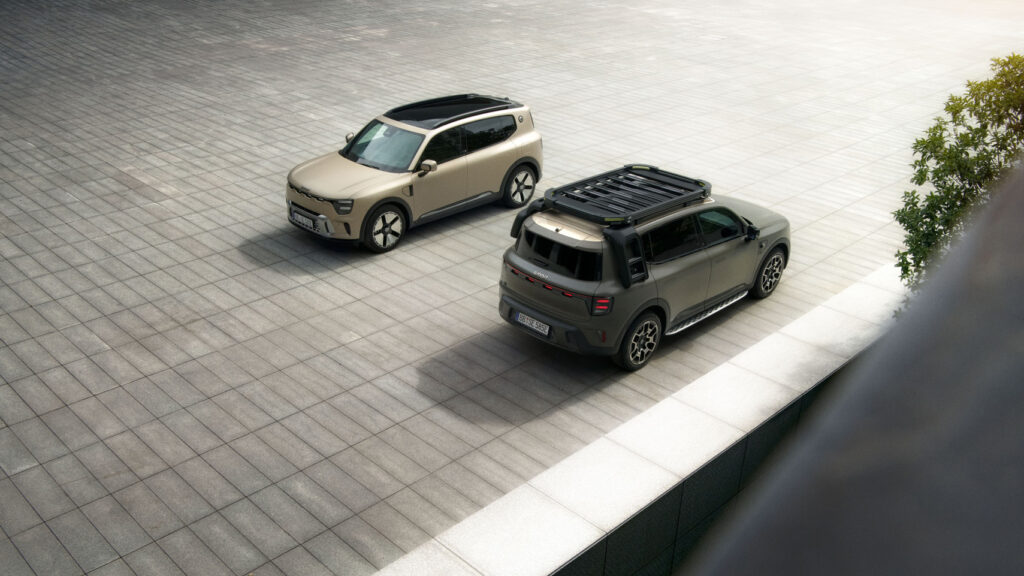
The once diminutive city car brand is branching out into electric off-roaders and it’s the Smart #5 that will lead the charge. The mid-sized SUV body flouts the modern bold Smart styling and is even available as a Summit edition with all-terrain tyres, a roof platform and adjustable height air suspension. There’s a heavy emphasis on tech, with dual 13-inch screens and an advanced computer chip providing in-built AI. No word on pricing, but expect kitted-out versions of the #5 to approach $100K.
Tesla Model Y
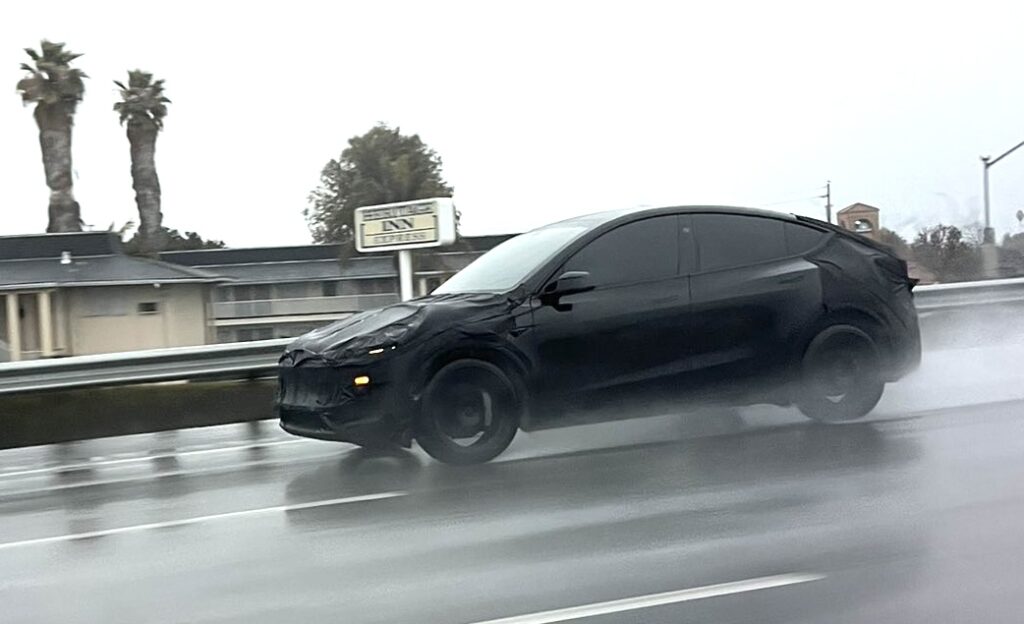
As with all things Tesla, there’s a lot of guesswork around where/when/how for the update to the Tesla Model Y, codenamed Project Juniper. But best estimates suggest the car will be revealed within weeks and make its way to Australia around the second quarter. As with the Project Highland update to the Model 3 (essentially the sedan version of the Model Y), expect design updates front and rear to freshen the look and improve aerodynamics. The updated Model Y will also likely get frequency selective dampers that provide a more supple ride. Also expect things such as ventilated front seats and a rear infotainment screen. The big question is what will happen with the price, which currently kicks off at $55,900 plus on-road costs. We wouldn’t be expecting any price drops, but equally don’t expect any big price jumps given the competition attacking the top selling EV in the country.
Volkswagen ID.4/ID.5
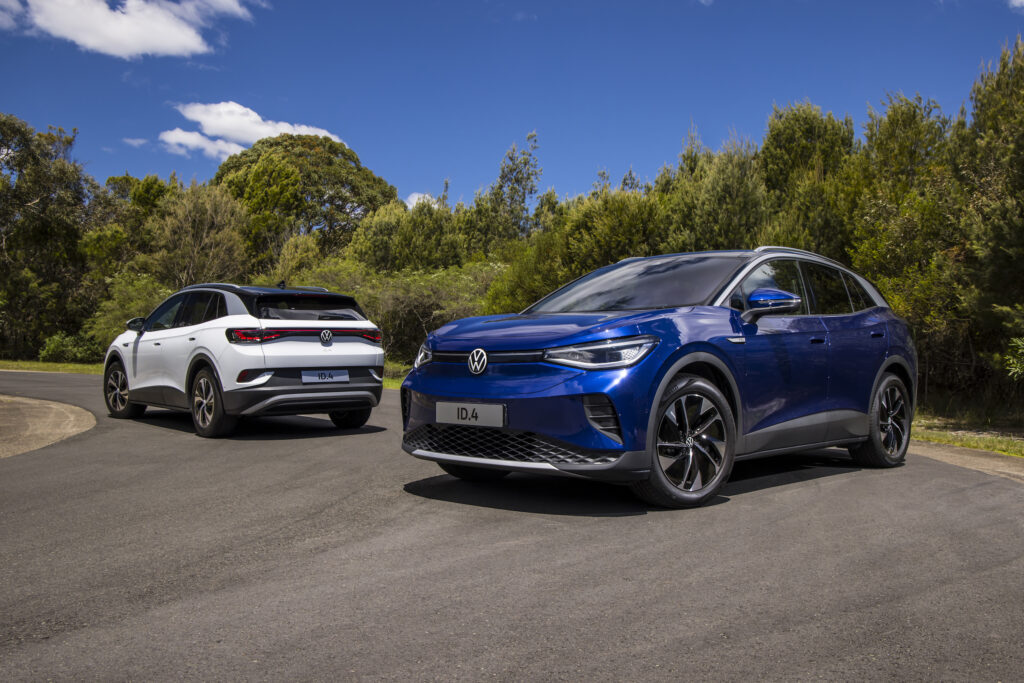
Delayed and delayed again, the ID.4 and sleeker-styled ID.5 look set to finally arrive here by the middle of 2025. That’s a full five years after they first hit the road overseas, although at least we’ll get some upgrades for a car that received a lukewarm reception. Pricing is yet to be determined but will hopefully be close-ish to the Tesla Model Y it needs to take on. Think something around $69K.
Zeekr 7X
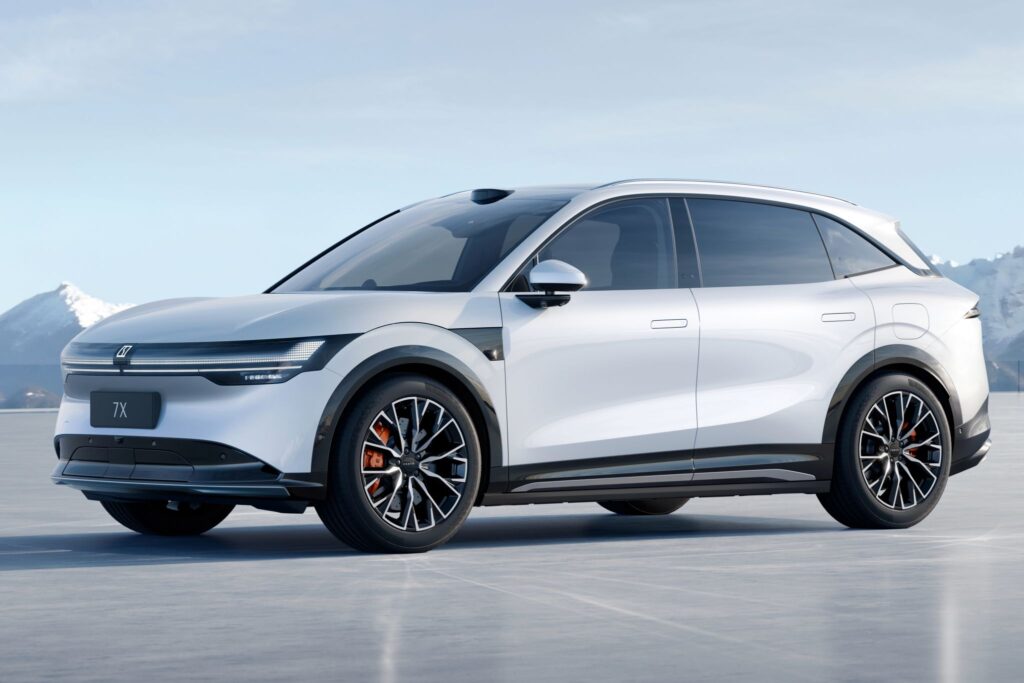
Bigger than the Zeekr X that’s now on sale, the 7X is yet another electric SUV trying to dethrone the Tesla Model Y. It’s larger than most, giving it an instant advantage, and with an emphasis on luxury (Zeekr is positioning itself as a luxury marque). It’s also loaded with equipment, including a head-up display, leather, massaging seats and 16-inch infotainment screen. It’s also available with air suspension and up to 475kW for supercar-like acceleration. Expect prices to kick off around $70,000 when the 7X arrives in the middle of the year.
Zeekr 009
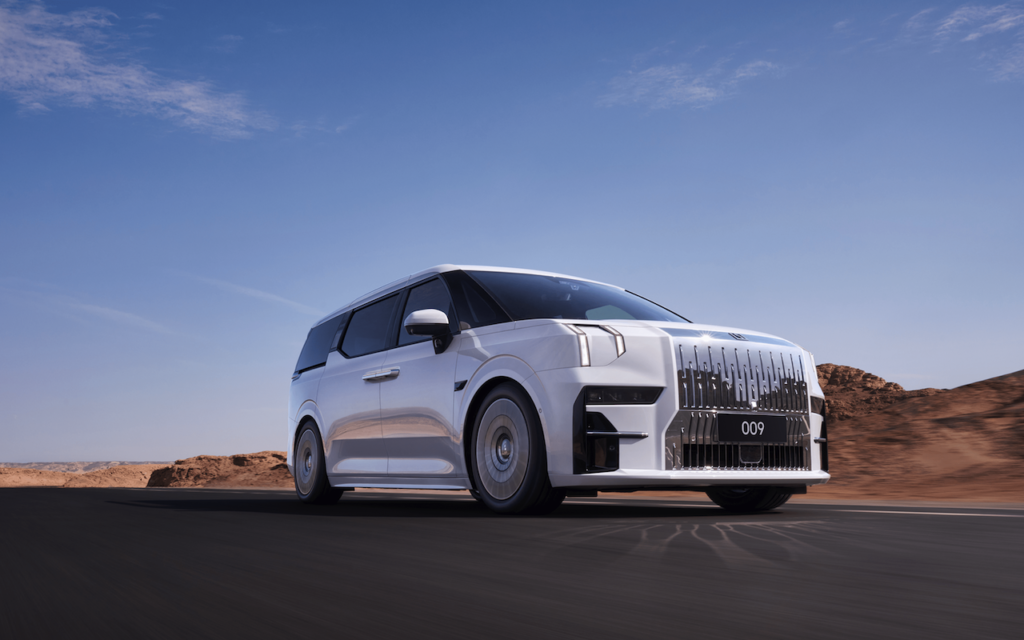
Hot on the heels of the recently arrived Zeekr X compact SUV is the Zeekr 009 that comes dripping in chrome and packed with luxury gear. The sizeable people mover has up to seven seats and an equally sizeable price tag; it starts at $135,900 plus on-road costs. There’s big power, too, with dual motors making a combined 450kW for 0-100km/h acceleration in 4.5 seconds. Zeekr says there’s already plenty of interest from luxury people mover buyers in Australia.


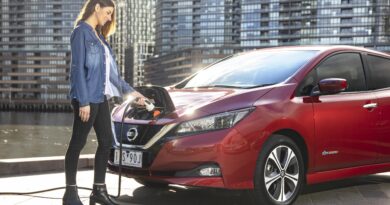
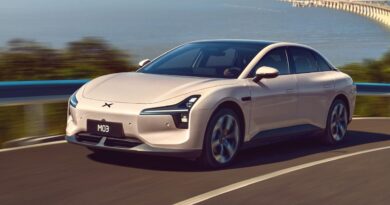
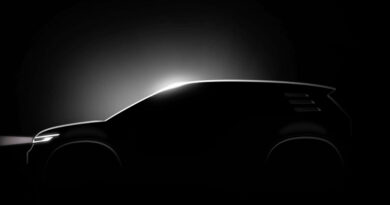
I didn’t see any reference to ev’s with
v2g capability, which I believe is an important consideration now that it looks that this will soon be allowed in Australia.
Any car with CCS2 can do v2g using a red earth/ambibox DC charger
Your Audi Q4 specs are wrong. 82kwh battery, 77kwh usable. Single motor rear wheel drive, 210kw, 560nm.
Apologies, I thought the Q4 e-tron battery had increased to 82kWh, but it looks like it’s always had that capacity (I’ve updated the article). And, as you point out, only 77kWh is usable. But specs on Audi’s Australian website suggest single motor models make 210kW and 545Nm.
I was hoping to see the BYD van that I understand is coming out in 2025
Sorry Karen, our understanding is BYD vans are beyond 2025 for Australia, hence not included. Could be wrong, of course.
Curious, I was expecting to see the Ioniq 6N coming, and the Born VZ is already confirmed too but not here. Seems to be a few missing, then?
Last year EV sales took a breather?
EV sales increased at a slighter lower level than the year before.
As a journalist perhaps you should know that words matter
EV sales in Australia (we’re talking pure battery electric vehicles, not plug-in hybrids) grew 4.7 percent in 2024 in a market that grew 1.7 percent. That’s well down on the 161 percent BEV growth in 2023 and the 94 percent growth in 2022. And EV market share in 2024 grew to 7.4 percent, up from 7.2 percent. The point I was trying to get across was that the local EV market essentially plateaued. Yes, there was growth, but it was small, especially compared with previous years. I don’t think “slightly lower level” is the best way to describe it…